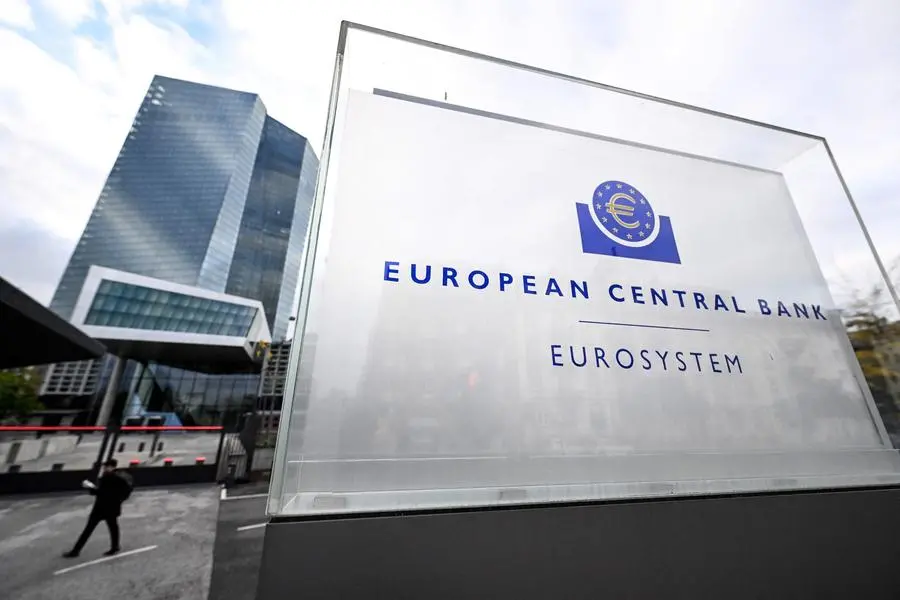PHOTO
European stock markets rose Friday after Asian indices closed mixed, with a cooler inflation environment offset by recession risks.
There are growing expectations that the Federal Reserve will cut US interest rates in the first half of 2024 thanks to a string of data suggesting its tightening cycle is finally getting price rises under control.
Data Thursday showed that the personal consumption expenditures (PCE) price index -- the Fed's preferred gauge of inflation -- slowed further in October.
Other recent data pointed to a softening in US consumer spending and the labour market.
Data this week also showed eurozone inflation came in lower than forecast, giving the European Central Bank room to pause on rates and consider cutting next year.
The outlook was less clear in Britain, where the rate of annual inflation remains the highest among G7 rich nations.
Bank of England officials have indicated that they do not see UK rate cuts any time soon, helping to boost the pound against main rivals.
Traders were awaiting a speech Friday due from Fed chief Jerome Powell, hoping for guidance on the bank's rate plans.
While officials have welcomed the inflation data, they have been reluctant to call an end to more than a year of rate hikes just yet, warning that prices could flare up again.
"It is still too early to eliminate the tightening bias in the Fed's forward guidance," said Brian Rose at UBS Global Wealth Management.
"We expect (Powell) to be careful to avoid sounding too dovish."
While Wall Street closed out November on a mixed note Thursday, it was a strong month for US and other global stock markets.
The Nasdaq and S&P 500 both jumped about 10 percent in November.
The ongoing weakness in China's economy remains a problem, even as authorities move to put in place measures to kickstart growth.
"There's still a lot of pessimism -- there's still a wait-and-see attitude," said James Fletcher of Ethos Investment Management.
Still, analysts remain positive about the global equity outlook.
Stephen Innes said investors were "recognising the Federal Reserve's successful management of inflation without inducing a severe recession, a concern that was a massive part of the 2023 narrative".
However, he added that "uncertainties persist amid geopolitical risks such as Russia/Ukraine tensions, Middle East dynamics, the upcoming US Presidential election, and the lagged effects of prolonged higher interest rates".
Oil prices steadied following Thursday's losses that were caused despite a deal between OPEC and Russia-led allies to further cut output.
The grouping said they would further reduce production in the new year, while Saudi Arabia would also extend an ongoing cut.
But observers said the measures were voluntary and it remained to be seen whether members -- particularly Russia and some African countries who had hit back at initial calls for a cut -- would stick to their pledges.
"The absence of a comprehensive breakdown with only a select number of countries detailing their reduction failed to convince the market," noted analysts at ANZ Group Holdings.
Key figures around 1115 GMT
London - FTSE 100: UP 0.6 percent 7,499.92 points
Paris - CAC 40: UP 0.4 percent at 7,341.68
Frankfurt - DAX: UP 0.7 percent at 16,327.93
EURO STOXX 50: UP 0.7 percent at 4,412.63
Tokyo - Nikkei 225: DOWN 0.2 percent at 33,431.51 (close)
Hong Kong - Hang Seng Index: DOWN 1.3 percent at 16,830.30 (close)
Shanghai - Composite: UP 0.1 percent at 3,031.64 (close)
New York - Dow: UP 1.5 percent at 35,950.89 (close)
Euro/dollar: DOWN at $1.0882 from $1.0889 on Thursday
Pound/dollar: UP at $1.2649 from $1.2621
Dollar/yen: DOWN at 148.05 yen from 148.14 yen
Euro/pound: DOWN at 86.03 pence from 86.22 pence
Brent North Sea crude: FLAT at $80.89 per barrel
West Texas Intermediate: DOWN 0.1 percent at $76.03 per barrel




















